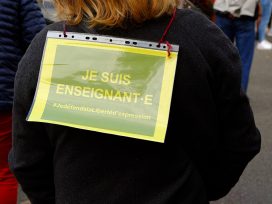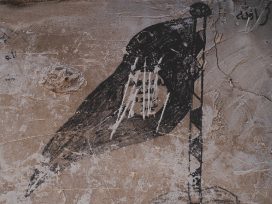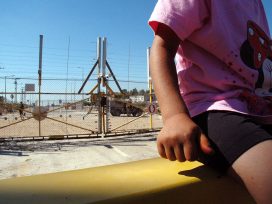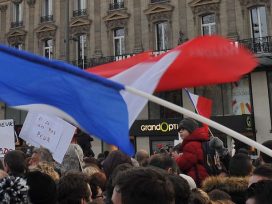I write this the same day I return to Oslo. It’s the day after the country has commemorated the mass murder of 22/7 with roses in their hands – there are still flowers strewn all over the city centre, it is still quiet. It’s the first time I see the government building with a gaping hole where the reception used to be, and chards of glass where there were windows, on floor after floor. It makes a huge impression, much bigger than I was prepared for. Later, I bring my children to put flowers down in front of Oslo Cathedral. Afterwards, I have to explain that it is not bad when adults cry, that rather it is a good thing when people can be sad together, and that the flowers are our way of saying that we prefer that people talk to each instead of fight each other with weapons.
Magazines are a slow medium. This issue of Samtiden was completed and in production when the bomb went off and the shots were fired. The editorial took as its starting point the political changes in Sweden, how much our neighbour has changed from being our cultural and financial big brother to a country with high unemployment among young people, with its first extreme right wing party elected into Riksdagen (parliament) and where they have recently conducted the hunt for “the Laserman 2” in Malmö. “What is happening in Sweden?” is a question I have been curious about the last few years. Suddenly it was far more important to reflect on what will happen in Norway next.
I was not alone in – after the first fear that a lot of human lives had been lost in the bomb explosion which happened next to the bus-stop closest to my office – fearing for the ordinary Muslim, if it turned out that Islamists were behind it. The only clear thought to seep through the numbness and nausea of those first 24 hours after 22/7 was the relief that an ethnic Norwegian man was responsible. Not because, as someone already tried to insinuate, some of us want to “rub in that we were right”. There are in reality no motives behind it other than relief at all the things that are not happening right now. And I’m not thinking about what is going on in self-righteous meta-debates on social networking sites, but of what could have happened physically and concretely out on the streets.
When this issue is launched, more than a month will have passed since 22/7. I wonder how we are doing then. How much we remember of our good intentions. Of the nausea and feeling of the surreal. Of the fear and, after a while, the intense feeling of community. I hope a lot. I fear not enough. Even now, less than a week after the event, one can witness renewed attempts at aggressive self defence by critics of Islamism, and accusatory anger from those who have warned against the hatred displayed in the debate. On the other hand, there are also attempts at self reflection on the part of for instance people like Hans Rustad from document.no [right-wing discussion forum critical of Islam], and Ole-Jørgen Anfindsen who is behind the Internet site with the dubious name honestthinking.org. In some ways this is only as can be expected, and is also a deed of necessity for these anti-Islamic websites identified as Anders Behring Breivik’s preferred discussion fora greatly praised in his so-called “manifesto”.
There is little doubt that the climate for public debate has changed a lot over the past decade where the combination of 9/11 and a freely growing Internet have changed the way we express ourselves. The supporters of free Internet-flow are obviously right that more voices are being heard than ever before. The question is if anonymity has helped bring the trolls out into the open, or if they have been allowed to grow bigger and uglier and in turn driven others away from participating in the discussions. I am unlikely to be the only one who is repulsed by the level off aggression, and depressed by the amount of racism that is coupled with almost every discussion thread about immigration in general and Muslims in particular. It is particularly important to contribute with a different basis for the debate in such a discussion climate, to discuss in a different tone and in a different format to what the ongoing media debate offers.
No topics have been discussed more in Samtiden in the course of my time as editor over the past five years than our attitudes towards Muslims, Islam and multiculturalism. We have made a conscious choice to hold on to this debate, in issue after issue, because we see it as perhaps the most important conflict we are in the middle of right now: What kind of country do we want Norway to be in 50 years? Hopefully it will still be a country that is astoundingly peaceful. But if we keep talking as if a country without immigrants is an alternative, or let the participants in the debate get a way with linguistic inexactitude where “Islam” unwittingly becomes synonymous with “Islamism” – this is hard to imagine. For me there is a clear thread running from my first anti-racist engagement to my present stand as a defender of a multicultural society that has room for Jews, Muslims, conservative Christians and all the rest of us. In a country which is still flying its flag at half mast, it is clearer than ever that there are many who want the same.






